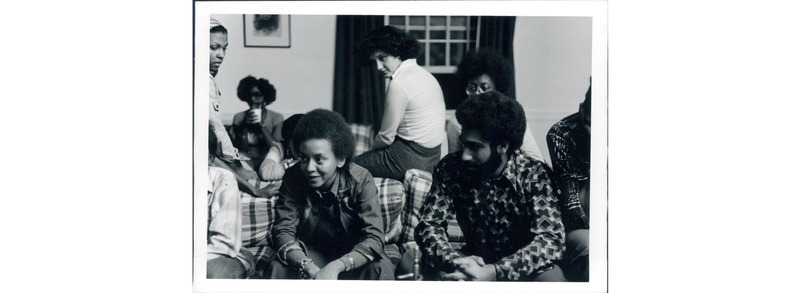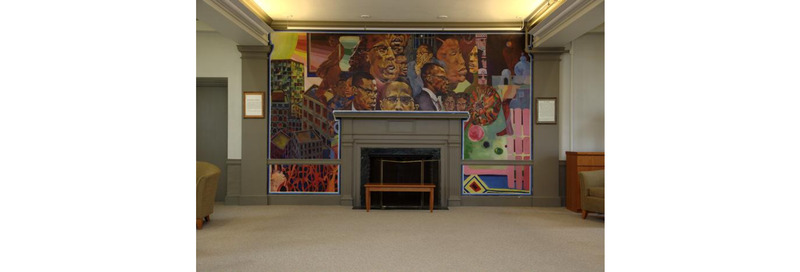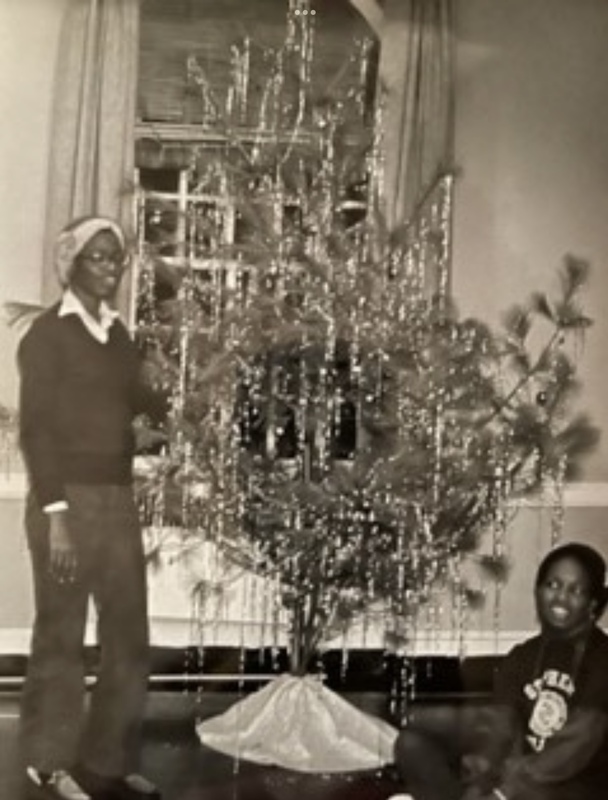Building the Black Community
This section of the exhibit will focus on the A Better Chance (ABC) Program, a program founded for Black student recruitment, the Afro American Society, the implementation of the Black Studies program at Dartmouth College, and Powell’s memories on the Black community’s atmosphere.
A Better Chance (ABC) Program
In 1963, the Independent Schools Talent Search Program was founded by representatives of twenty-one schools. Their goal was to find high achieving, underprivileged students in hopes of increasing their population and ability to succeed on college campuses. In response to their founding, in the summer of 1964, Dartmouth College began the A Better Chance Program, an eight-week course over the summer to provide economically disadvantaged students with tools they needed to succeed in preparatory schools, and eventually at a college institution. The program was successful. Out of the fifty-five students who engaged in the program, forty-nine enrolled in college preparatory schools. For the second year of the program, the college brought in sixteen teachers to enhance the students' English and Mathematic skills. According to Dartmouth President John Sloan Dickey, the program's, “primary objective educationally is to determine whether an intensive and highly individualized effort on a campus of higher education can help remedy the academic and cultural deprivation which stands between a promising individual and its educational fulfillment.”
Afro American Society
In his second year at Dartmouth College, Forrester “Woody” Lee ‘68 had a conversation with Jim Bopp ‘66, the President of the Dartmouth Christian Union. Bopp invited Lee to a gathering he was organizing at the Tucker Foundation. Upon arriving, Lee noticed quite a bit of the college’s Black students were in the room. Bopp had invited them all to introduce themselves, and form a community. After a brief introduction, Bopp left the room, giving the gentleman time to talk. Thus, the Afro American Society was formed. It’s an organization dedicated to supporting Dartmouth College’s Black students. Lee served as President of the organization during his time as a student. During her senior year, Powell served on the communications committee, and Eileen Cave ‘76 was the first woman to be elected President of the organization.
"I had brothers come up and challenge me and ask me why I thought I should be elected president, and when I responded, it must have been sufficient because I did have support to serve in that office and in that capacity. I looked at it as more of a time of Black feminism and empowerment than necessarily the negative attributes of pushback because it was also part of the pushback of the greater society outside of Dartmouth." - Eileen Cave '76
Black Studies
In Chapter 4, "Black Power and the Big Green: Dartmouth College and the Challenges of Isolation" of Upending The Ivory Tower, Stefan Bradley provides an exclusive look into the lives of Black students at Dartmouth College in the late 1960s and early 1970s. With the Civil Rights Movement and the Black Liberation Movement rattling the country, Dartmouth’s Black students gathered, forged bonds with each other, and demanded amendments from the institution, in regards to building and improving Black life on campus. One of those demands was the creation of a Black studies program. Students called on their college to preserve Black history and culture by offering courses and establishing a department dedicated to the matter. Upon hearing their demands, the Black Studies program was established in 1970, leading to an increasing number of Black faculty as well.
Powell's Memories
Fifty years later, Powell remembers the closeness of the Black community during the early 1970s. She recalls gathering, forming friendships during her time at the Big Green. The students met often at the Cutter Shabazz Hall, which is dedicated to Malcolm X, and is today the Shabazz Center for Intellectual Inquiry, a living learning community for Black students. One time, during a card game, the power went. Refusing to stop the game, someone grabbed candles and lit them to provide the students light. Another time, as Powell recalls, she noticed the Cutter Shabazz Hall lacked a Christmas tree during the holiday season. Powell recruited friends, and they chopped one down, and decorated it for their community center. Along with her great memories, Powell also remembers enduring the rigorous curriculum, and pulling several all-nighters. But her recollection proves the effectiveness of having a support system, a community filled with peers to depend on, making the hard times worthwhile.
"The Black community was very close...Nobody wanted anyone to fail." - Wanda Powell '73
Ending Statement
It’s not easy being a pioneer. Being among the first in your gender, in your community to take the first step into the unknown, with no foreknowledge, or established community to embrace you. I'm sure it was hard, but it was so necessary. Today, there are countless organizations to join, and opportunities to take advantage of because of your establishment and endurance. To Wanda Powell, and every trailblazing Black alumni of Dartmouth College: Thank you.
- Kambrian Winston '26




